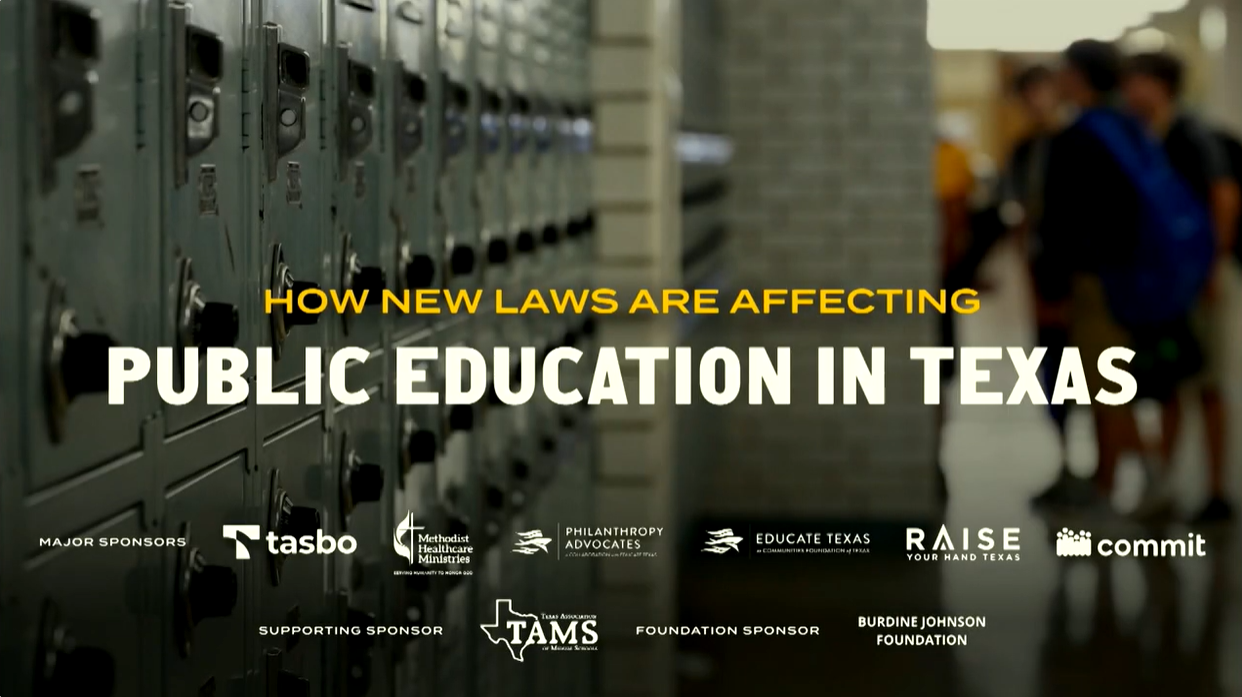The House Public Education Committee met Tuesday to consider and vote on several bills, including a high-profile bill aimed to reduce cyberbullying.
HB 306 by state Rep. Ina Minjarez (D-San Antonio) would crack down on bullying and cyberbullying. The bill defines “cyberbullying” as “bullying that is done through the use of electronic communication, including through the use of a cellular or other type of telephone, a computer, a pager, a camera, electronic mail, instant messaging, text messaging, a social media application, Internet website, or other Internet-based communication tool.” Cyberbullying may occur outside of a school or school-sponsored event if it interferes with a student’s educational opportunities or substantially disrupts the orderly operation of a classroom, school or school activity.

- State Rep. Ina Minjarez (D-San Antonio) lays out anti-cyberbullying bill.
The bill would further require districts to provide for anonymous reporting of bullying behavior. HB 306 would allow for a student to removed or expelled if they encourage a minor to commit suicide, incite violence through group bullying or threaten to release intimate visual material of a minor. The bill would require schools to report bullying to police, and would hold parents liable for damages and legal fees if their child engages in bullying another child. The bill would create a new Class A misdemeanor criminal offense for “inducing suicide or attempted suicide of a minor by nonphysical bullying.”
Last session, ATPE
successfully advocated for HB 2186, which required suicide prevention training for school staff. Suicide is the second highest cause of death for high school-aged children, and it is often prompted by bullying. Several parents of children who committed suicide after being bullied offered emotional testimony in support of HB 306. ATPE also testified in support of the bill.
Before adjourning, Chairman Dan Huberty (R-Houston) led the committee in advancing several bills. Chairman Huberty indicated the committee would vote on additional bills in a formal meeting Thursday upon adjournment of the House. The committee approved the following bills Tuesday:
- HB 61, which would include metrics regarding the academic performance of students formerly receiving special education services on the list of performance indicators utilized by the “A through F” public school accountability system.
- HB 156, which would establish a pilot program in a certain South Texas high schools for placement of students in Junior Reserve Officers’ Training Corps (JROTC) programs as an alternative to placement in disciplinary or juvenile justice alternative education programs.
- HB 209, which would require every high school to make voter registration applications available to students and employees.
- HB 441, which would ban schools from providing student instruction on Memorial Day.
- HB 1057, which would add pre-AP and pre-IB participation to the performance indicators under the “A through F” system, along with the percentage of student who have received credit by examination, the percentage of students who have been promoted over their grade level and the percentage who received a diploma in three years or less.
- HB 1114, which would reduce the number of service days required of teachers in a district that anticipates providing less than 180 days of instruction, while preserving the teacher’s salary. Rep. King voted no.
- HB 1174, which would add the percentage of students who have successfully completed on “OnRamps” dual enrollment course to the list of performance indicators under the “A through F” accountability system.
- HB 1336, which would require school districts to include in their annual financial management reports the costs associated with administering assessments required by state law.
- HB 1500, which would add the percentage of students who earn an associate degree to the list of performance indicators under “A through F.”
- HB 1540, which would add the importance of quickly selecting a major or field of study into the list of post-secondary education information required to be provided to high school students.
- HB 1583, which would extend epinephrine auto-injector regulations, privileges, grant eligibility and immunity from liability to private schools.
- HB 1638, which would order TEA and the Texas Higher Education Coordinating Board to develop statewide goals for dual credit programs, along with a program to evaluate them.
- HB 2614, which would waive the requirement that school districts administer a free nationally norm-referenced preliminary college preparation assessment instrument to students entering high school and students in the 10th grade.
- HB 2623, which would require schools to create a personalized transition program for students returning after missing 30 instructional days or more because of placement in a juvenile center or hospital care.
- HB 3145, which would require each district’s board of trustees to adopt a school recess policy with a minimum number of minutes.
- HB 3318, which would require a district of innovation (DOI) to post its innovation plan online and maintain it in public view on the district’s website.
- HB 3369, which would require additional training and supports for special education teachers and district personnel responsible for determining eligibility for special education programs.
- HB 3381, which would order the governor to designate a Texas Military Heroes Day in public schools.
The hearing began with
HB 1010 by state Rep. Roberto Alonzo (D-Dallas), which would give rules, bylaws and written policies adopted by a local school district’s board of trustees the force of law in relation to the district. Under current law, parents are often forced to file a challenge in a state district court if a school district does not comply with its own stated policy. The bill could allow parents to seek relief instead from the Texas Education Agency (TEA) commissioner. According to the
fiscal note, HB 1010 would cost roughly $365,000 a year. ATPE supports this bill.
HB 3209 by state Rep. Larry Gonzales (R-Round Rock) would require TEA to enter into a memorandum of understanding with the regional day school programs for the deaf regarding performance evaluation requirements for accountability purposes. The
fiscal note estimates HB 3209 would cost about $107,000 per year.
HB 1569 by state Rep. Trent Ashby (R-Lufkin) would require a residential treatment facility to provide a student’s school, behavioral and arrest records to a district or open-enrollment charter school that provides educational services to a student placed in the facility. ATPE supports this bill.
HB 3706 by state Rep. Eddie Lucio III (D-Brownsville) would allow community-based dropout recovery education programs to provide alternative education programs to at-risk students online, in addition to at a campus.
HB 1075 by state Rep. Ed Thompson (R-Pearland) would require sports officials registered with UIL to undergo an additional criminal background check once every three years.
HB 933 by state Rep. Oscar Longoria (D-Mission) would ban rolled or shaved baseball bats for use in University Interscholastic League (UIL) activities. Both are methods of doctoring metal bats. “Shaving” is the process of mechanically thinning a bat’s inner walls, while “rolling” is the process of mechanically compressing a bat’s barrel. Both can significantly increase the power of a metal bat while reducing the bat’s lifespan. Rep. Longoria argued this significantly increases the danger to players on the field.
HB 3887 by state Rep. Garnet Coleman (D-Houston) would add physical and emotional trauma training to the mental health training requirements for school staff.
HB 310 by state Rep. Jarvis Johnson (D-Houston) would allow compensatory education allotment funds to be used to fund a district’s school guidance and counseling program.
HB 2767 by state Rep. Barbara Gervin-Hawkins (D-San Antonio) would allow TEA to delay the implementation of any accountability rule by an additional two years following the school year in which the rule is adopted unless otherwise required by law.
HB 2683 by state Rep. Gina Hinojosa (D-Austin) would exempt school buses from paying a toll for the use of a toll project. ATPE supports this bill.
HB 2014 by state Rep. Tan Parker (R-Flower Mound) would allow the TEA commissioner to designate a campus as a “mathematics innovation zone.” Such a campus would be exempt from accountability interventions for two years and would be allowed to use a “pay for success” program approved by the commissioner. The bill sets up a framework for creating such pay for success programs funded by private investors. TEA commissioner Mike Morath testified that districts would essentially take out a loan from an investor, and repayment would depend upon achievement of measurable outcomes. According to the
fiscal note, HB 2014 would cost the state roughly $10 million per year.
HB 3548 by Rep. Parker would grant immunity from personal liability to a director, officer or employee of the nonprofit corporation established by the Texas Public Finance Authority. The bill would specify that the nonprofit corporation itself is subject to liability only in the manner that applies to school districts.
HB 413 by vice-Chair Diego Bernal (D-San Antonio) would allow instructional materials allotment (IMA) funds to be used to pay for educator training and salaries, including counselor salaries.
HB 1451 by state Rep. Ryan Guillen (D-Rio Grande City) would require SBOE adopt criteria to allow a student to earn one of the two foreign language credits required for high school graduation by successfully completing a dual language immersion program at an elementary school.
HB 884 by Educator Quality Subcommittee Chair Ken King (R-Canadian) would order the State Board of Education (SBOE) to review and revise the foundation curriculum Texas Essential Knowledge and Skills (TEKS) to be narrower and require less time than the TEKS adopted as of January 1, 2017. As part of this process, SBOE would be required to examine the time necessary for instruction and mastery of each TEKS, whether college and career readiness standards have been adequately met and whether each assessment instrument adequately assesses a particular student expectation.
HB 4064 by state Rep. Dwayne Bohac (R-Houston) would add a digital education requirement to the qualifications for teacher certification and add a continuing education credit for instruction in digital technology. The bill would also include digital learning in the requirements for staff development. ATPE supports this bill.
HB 3434 by state Rep. Linda Koop (R-Dallas) would require TEA adopt uniform general conditions adopted by the Texas Facilities Commission for use in all building construction contracts made by school districts.






